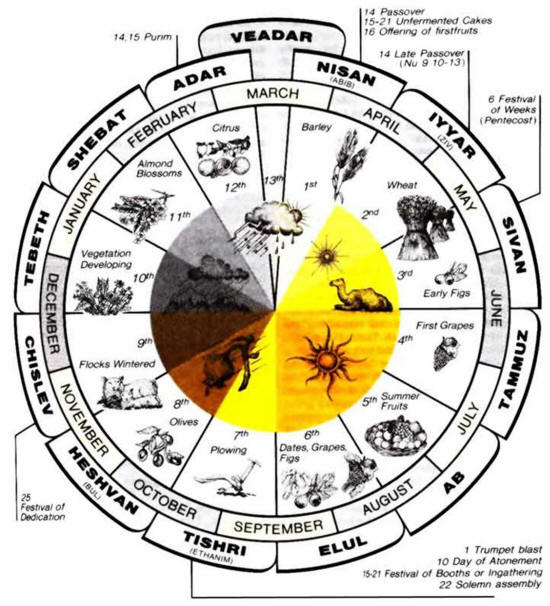
The
Seven-Feasts of Israel:
the First and Second Coming of Messiah
2. Overview of the Fall Feasts of Israel: Trumpets, Atonement and Tabernacles
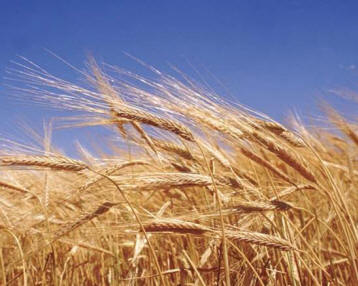
The first four feasts of Israel begin in the month of Nisan this is the first month of the calendar to the nation Israel as designated by the Lord (Exodus 12:1). In this first month, three of the seven feasts take place and in the beginning of the fourth month (Weeks/Pentecost) the fourth feast takes place. These feast correspond with the events in God’s plan of redemption.
Jesus, God’s Passover lamb was killed on Passover on the 14th of Nisan (Exodus 12:6-7, Matthew 26:2). Following his death, the Feast of Unleavened Bread began on the 15th of Nisan and lasted 7-days. Jesus was resurrected on the Feast of Firstfruits, God’s firstfruits of the resurrection of the redeemed. Fifty days later in the upper room at the Feast of Weeks (Pentecost) the Holy Spirit descended upon the Disciples in the upper room, enabling them to speak in the tongues of the nations. They were equipped by the Spirit of God to reap the harvest of the nations. God’s harvest of the nations would now take place as the disciples of Messiah (Christ) would go forth from Jerusalem to reach the nations.
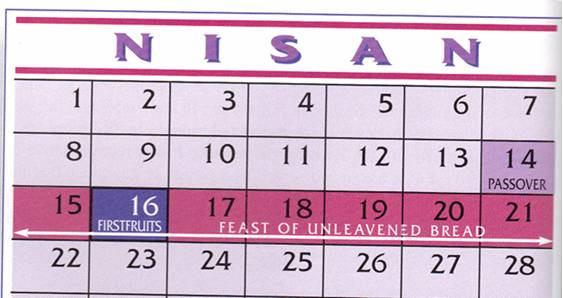 The feast days of Israel is God’s prophetic calendar of Redemption. The
first four feast are fulfilled at the first coming of Jesus the lamb of
God. While the last three feast are fulfilled at the Second Coming when the
Lamb returns as the Lion of the Tribe of Judah, to rule and reign over the
earth. Between these two periods, the Fourth Feast Day (Weeks/Pentecost) and
the Feast of Trumpets is the four months of the harvest. The harvest period
is typified in the Jewish Calendar
The feast days of Israel is God’s prophetic calendar of Redemption. The
first four feast are fulfilled at the first coming of Jesus the lamb of
God. While the last three feast are fulfilled at the Second Coming when the
Lamb returns as the Lion of the Tribe of Judah, to rule and reign over the
earth. Between these two periods, the Fourth Feast Day (Weeks/Pentecost) and
the Feast of Trumpets is the four months of the harvest. The harvest period
is typified in the Jewish Calendar
God’s harvest is the redemption of lost souls into the house of God. We are called to go forth and reap God’s harvest. Jesus sets the model with the Samartian woman of Sychar. Jesus reveals to this outcast woman that He is the Messiah of Israel, by revealing details of her life that he would have had no way of knowing. She leaves Jesus and goes back to the city and tells her neighbors and others about Jesus. Returning she is leading them to Jesus, He then makes the following comment to the disciples,
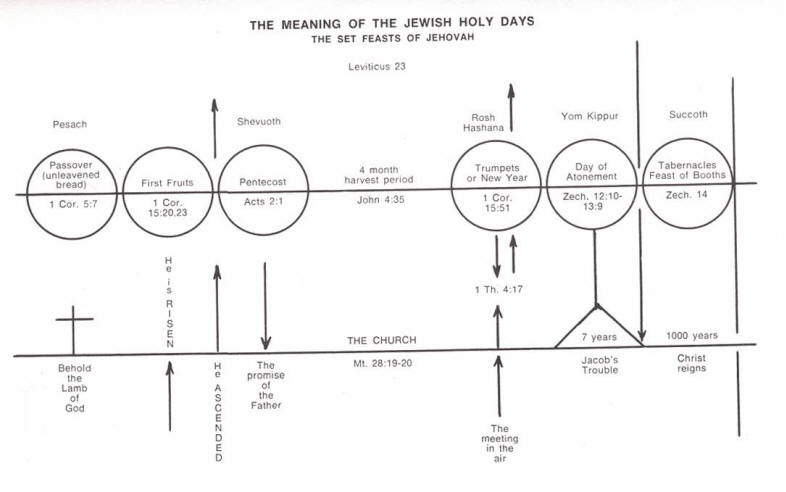
Do you not say, ‘There are still four months and then comes the harvest’? Behold, I say to you, lift up your eyes and look at the fields, for they are already white for harvest! 36 And he who reaps receives wages, and gathers fruit for eternal life, that both he who sows and he who reaps may rejoice together. 37 For in this the saying is true: ‘One sows and another reaps.’ (John 4:34-37)
Jesus viewed the people of Sychar as God’s harvest. The harvest of Israel is the redeemed of humanity. The harvest of Leviticus is a picture or “type” of God’s harvest of souls. The first four feast were literally fulfilled at the First Coming of Jesus, therefore the last three feasts will be literally fulfilled at the Second Coming of Jesus. The four month between the 4th Feast and the 5th Feast is the Church Age. This is a period of sowing and reaping of souls. This is the four month Jesus refers to in John 4:35, He calls us to go forward during this time and to advance the Kingdom of God, reaping and sowing a harvest.
18 And Jesus came and spoke to them, saying, “All authority has been given to Me in heaven and on earth. 19 Go therefore[c] and make disciples of all the nations, baptizing them in the name of the Father and of the Son and of the Holy Spirit, 20 teaching them to observe all things that I have commanded you; and lo, I am with you always, even to the end of the age.” Amen.[d] Matthew 28:18-20
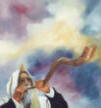
The Feast of Trumpets
23 Then the LORD spoke to Moses, saying, 24 “Speak to
the children of Israel, saying: ‘In the seventh month, on the first day
of the month, you shall have a sabbath-rest, a memorial of blowing of
trumpets, a holy convocation. 25 You shall do no customary work
on it; and you shall offer an offering made by fire to the LORD.’”
Leviticus 23:23-25
The Feast of Trumpets is more commonly known in Judaism today as Rosh Hashanah (Head of the Year) it is celebrated as the “New Year” in the Jewish calendar. The title of New Year is not a biblical title, Nisan is designated as the “New Year” by the Lord in Exodus chapter 12. The New Year designation of the Feast of Trumpet began in the 2nd century AD, more then 1500 years after the Exodus. The Feast of Trumpets along with The Feast of the Day of Atonement are known as the “High Holy Days” in Judaism.
Prophetically the period we are in is between the 4th Feast (Weeks) and the 5th Feast Trumpets. The Feast of Weeks (Pentecost) began the Church Age (Acts 2:1). Trumpets will usher in the Second Coming of the Messiah when the Rapture gathers the believers into Heaven as the Lord is about to judge the wicked on earth.
Trumpets play a significant role in Israel’s history throughout scripture. God instructed Israel to use two types of trumpets. One made from ram’s horns called a shofar in Hebrew, the other one made of silver (Num. 10:2).
The silver trumpets were used to direct the movement of the camp of Israel and for calling the congregation to the tabernacle. The shofar trumpet (ram’s horn) was used to announce Jubilee throughout the land of Israel (Lev. 25:9). Joshua blew the shofar in the conquest of Jericho (Josh. 6:20). Seven trumpets precede the arc of the covenant as the nation circled the city the city of Jericho. Nehemiah used the trumpet to call Israel to battle (Neh. 4:18). Gideon blew the trumpet to in the battle of the Midianites (Jud. 7:18).
God’s word also speaks of Heavenly trumpets, there are seven trumpets referred to in the book of Revelation (Rev. 8:6). These trumpets herald judgments on the earth. In Joel associates the Trumpet with the “Day of the Lord”.
1
Blow the trumpet in Zion,
And sound an alarm in My holy mountain!
Let all the inhabitants of the land tremble;
For the day of the LORD
is coming,
For it is at hand:
2 A day of darkness and gloominess,
A day of clouds and thick darkness,
Like the morning clouds spread over the mountains.
A people come, great and strong,
The like of whom has never been;
Nor will there ever be any such after them,
Even for many successive generations.
3 A fire devours before them,
And behind them a flame burns;
The land is like the Garden of Eden before them,
And behind them a desolate wilderness;
Surely nothing shall escape them.
Joel 2:1-3
The Day of the Lord is when God will judge the nations and reward His people in the last days (Ish. 13:6-13, Ezek 13:3-8, 30:2-3, Joel 1:15;3:14-16, Amos 5:18-20; Zeph 1:14-2:3, Zech. 14:1-4; Mal. 4:5-6). Zechariah gives us details of this day as the nations come against Israel but the Lord fights on the behalf of Israel against the nations. The Lord will be victorious and rule over the earth as the world is judged.
1 A day of the LORD is coming when your plunder will be divided among you. 2 I will gather all the nations to Jerusalem to fight against it; the city will be captured, the houses ransacked, and the women raped. Half of the city will go into exile, but the rest of the people will not be taken from the city. 3 Then the LORD will go out and fight against those nations, as he fights in the day of battle. 4 On that day his feet will stand on the Mount of Olives, east of Jerusalem, and the Mount of Olives will be split in two from east to west, forming a great valley, with half of the mountain moving north and half moving south9 The LORD will be king over the whole earth. On that day there will be one LORD, and his name the only name. Zechariah 14:1-4,9
The blowing of God’s trumpet will signal the beginning of this final phase of Redemption. The Trumpet of God corresponds with the Seventh month. The Feast of Trumpets corresponds with the Trumpet of God in the same way Passover corresponded with the death of Messiah and Pentecost (Weeks) corresponded with the Holy Spirit coming upon the Church. Paul connects the Trumpet of God with the Ressurrection of the believers in first Thessalonians and first Corinthians.
13Brothers, we do not want you to be ignorant about those who fall asleep, or to grieve like the rest of men, who have no hope. 14We believe that Jesus died and rose again and so we believe that God will bring with Jesus those who have fallen asleep in him. 15According to the Lord's own word, we tell you that we who are still alive, who are left till the coming of the Lord, will certainly not precede those who have fallen asleep. 16For the Lord himself will come down from heaven, with a loud command, with the voice of the archangel and with the trumpet call of God, and the dead in Christ will rise first. 17After that, we who are still alive and are left will be caught up together with them in the clouds to meet the Lord in the air. And so we will be with the Lord forever. 18Therefore encourage each other with these words. I Thes. 4:13-17
52in a flash, in the twinkling of an eye, at the last trumpet. For the trumpet will sound, the dead will be raised imperishable, and we will be changed. I Corinthians 15;52
Though the Feast of Trumpets revolves around Israel in Leviticus, we must remember its through Israel that redemption comes to the whole earth. The Messiah came through Israel, the Gospel went forth from Israel to the nations. The twelve apostles were Jews, descendents of Abraham, Isaac and Jacob sent forth to minister to the nations. Therefore the church and Israel are linked together yet separate.
Paul in Romans chapter 11 explains the Church is grafted into the covenant blessings of Israel. Even though Israel rejected Jesus as Messiah, they would one day be restored when they accept Him. Yet in the time being the Church reaps the benefits of Israel’s covenant blessings.
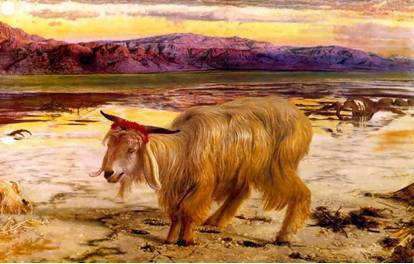 The
Day of Atonement
The
Day of Atonement
26 And the LORD spoke to Moses, saying: 27 “Also the
tenth day of this seventh month shall be the Day of Atonement.
It shall be a holy convocation for you; you shall afflict your souls, and
offer an offering made by fire to the LORD. 28 And you shall do
no work on that same day, for it is the Day of Atonement, to make
atonement for you before the LORD your God. 29 For any person who
is not afflicted in soul on that same day shall be cut off from his
people. 30 And any person who does any work on that same day,
that person I will destroy from among his people. 31 You shall do
no manner of work; it shall be a statute forever throughout your
generations in all your dwellings. 32 It shall be to you a
sabbath of solemn rest, and you shall afflict your souls; on the
ninth day of the month at evening, from evening to evening, you shall
celebrate your sabbath.” Leviticus 23:26-32
The Feast of Trumpets takes place on the first day of the seventh month, the feast of Atonement takes place 9-days later on the 10th of the seventh month. On this day two goats are brought before the High Priest, one is sacrificed and the other is released into the wilderness (Lev. 16:20), as the sins of Israel are atoned for. The goat bears the sins of Israel into the wilderness as the high priest lays his hands on the goat confessing the sins of Israel. The other goat is killed and its blood sprinkled on the mercy seat (Lev. 16:15).
The Feast of Trumpets typifies the Rapture while the Feast of Atonement typifies the judgment of God for the sins of Israel. This period of judgment is known as the “Day of the Lord” when the nations come against the land of Israel in the last days following the rapture of the Church. This day is described as an “offering made by fire” to the Lord. This feast typifies Israel before the return of the Lord. In Matthew 23, Jesus promised Israel he would not return until they accept him as the one “comes in the name of the Lord” quoting from the Messianic Psalm 118:26. The events leading to the nation of Israel’s repentance and crying out to the Messiah are described as the “time of Jacob’s trouble”, Daniel calls them unparalled in the history of the world (Daniel 12:1). Zechariah captures this period and links it with the “One pieced”, Jesus the Messiah.
3 On that day, when all the nations of the earth are gathered against her, I will make Jerusalem an immovable rock for all the nations. All who try to move it will injure themselves. 9 On that day I will set out to destroy all the nations that attack Jerusalem.10 "And I will pour out on the house of David and the inhabitants of Jerusalem a spirit [a] of grace and supplication. They will look on [b] me, the one they have pierced, and they will mourn for him as one mourns for an only child, and grieve bitterly for him as one grieves for a firstborn son. Zechariah 12:3,9-10
During this period of time on the earth many people will come to know the Lord through the events in Israel. In Jerusalem there will be the two witnesses who will testify to the nations, along with the 144,000 from the 12 tribes of Israel. Through the ministry of Israel to the nations God will reveal His word, it will be an offering of fire. These events correspond with Revelation chapters 6 to 19 and end with the return of Christ.
31 “When the Son of Man comes in His glory, and all the holy[c] angels with Him, then He will sit on the throne of His glory. 32 All the nations will be gathered before Him, and He will separate them one from another, as a shepherd divides his sheep from the goats. 33 And He will set the sheep on His right hand, but the goats on the left. 34 Then the King will say to those on His right hand, ‘Come, you blessed of My Father, inherit the kingdom prepared for you from the foundation of the world: Matthew 25:31-34
Those who accept the Messiah Jesus Christ as their Lord and savior both the Gentiles and Jew will enter the period known as the Millennium (Revelation 20:4). These are those who did not die in the tribulation but survive the tribulation, they will have mortal bodies since they never died. Those who died will be resurrected they will rule and reign with them during the Millennium (Matthew 19:28).
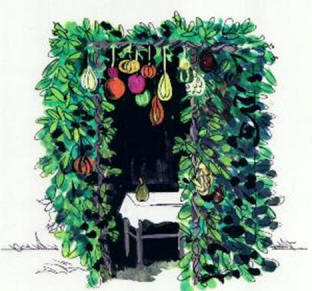
The Feast of Tabernacles
33 Then the LORD spoke to Moses, saying, 34 “Speak to
the children of Israel, saying: ‘The fifteenth day of this seventh month
shall be the Feast of Tabernacles for seven days to the LORD.
35 On the first day there shall be a holy convocation. You
shall do no customary work on it. 36 For seven days
you shall offer an offering made by fire to the LORD. On the eighth day you
shall have a holy convocation, and you shall offer an offering made by fire
to the LORD. It is a sacred assembly, and you shall do no
customary work on it.
37 ‘These are the feasts of the LORD which you shall
proclaim to be holy convocations, to offer an offering made by fire
to the LORD, a burnt offering and a grain offering, a sacrifice and drink
offerings, everything on its day— 38 besides the Sabbaths of the
LORD, besides your gifts, besides all your vows, and besides all your
freewill offerings which you give to the LORD.
39 ‘Also on the fifteenth day of the seventh month, when you have
gathered in the fruit of the land, you shall keep the feast of the LORD
for seven days; on the first day there shall be a sabbath-rest,
and on the eighth day a sabbath-rest. 40 And you shall
take for yourselves on the first day the fruit of beautiful trees, branches
of palm trees, the boughs of leafy trees, and willows of the brook; and you
shall rejoice before the LORD your God for seven days. 41 You
shall keep it as a feast to the LORD for seven days in the year. It shall
be a statute forever in your generations. You shall celebrate it in the
seventh month. 42 You shall dwell in booths for seven days. All
who are native Israelites shall dwell in booths, 43 that your
generations may know that I made the children of Israel dwell in booths when
I brought them out of the land of Egypt: I am the LORD your God.’”
44 So Moses declared to the children of Israel the feasts of the
LORD. Leviticus 23:33-44
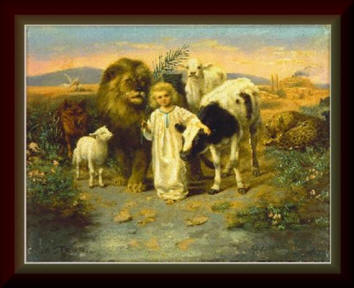 Following
the Feast of Atonement on the 10th on the seventh month is the
Feast of Tabernacles on the 15th through the 22nd .
The Hebrew name for this feast is known as Succoth, Israel is
commanded to make houses out of from the branches of palm, willow and leafy
trees. Israel is to celebrate for seven-days as they gather the fruit of
the land and hang it from their booths made from these branches. These
booths are to remind Israel of their temporary dwelling in the desert. They
are also a picture of God’s blessing and rest upon the nation, who will one
day turn to Jesus the Messiah in repentance and obedience. This Feast
typifies the Messianic Kingdom, when Israel will have God’s rest.
Following
the Feast of Atonement on the 10th on the seventh month is the
Feast of Tabernacles on the 15th through the 22nd .
The Hebrew name for this feast is known as Succoth, Israel is
commanded to make houses out of from the branches of palm, willow and leafy
trees. Israel is to celebrate for seven-days as they gather the fruit of
the land and hang it from their booths made from these branches. These
booths are to remind Israel of their temporary dwelling in the desert. They
are also a picture of God’s blessing and rest upon the nation, who will one
day turn to Jesus the Messiah in repentance and obedience. This Feast
typifies the Messianic Kingdom, when Israel will have God’s rest.
The Millennium is unique period on the earth, when God’s redemption and rest will transcend nature. When Adam and Eve fell, all of creation fell as well. Therefore when humanity is restored through the work of Jesus then nature will also be restored to its pre-fallen state (Romans 8:22). This change in nature is picture powerfully in Isaiah chapter 11.
5
Righteousness shall be the belt of His loins,
And faithfulness the belt of His waist.
6 “ The wolf also shall dwell with the lamb,
The leopard shall lie down with the young goat,
The calf and the young lion and the fatling together;
And a little child shall lead them.
7 The cow and the bear shall graze;
Their young ones shall lie down together;
And the lion shall eat straw like the ox.
8 The nursing child shall play by the cobra’s hole,
And the weaned child shall put his hand in the viper’s den.
9 They shall not hurt nor destroy in all My holy mountain,
For the earth shall be full of the knowledge of the LORD
As the waters cover the sea. Isaiah 11:5-9
Jesus on the last day of the feast of Tabernacles cried out to Israel His offer of redemption. Only when Israel turns to the Messiah who was killed at Passover will the nation have the rest promised in the Feast of Tabernacles.
37 On the last day, that great day of the feast, Jesus stood and cried out, saying, “If anyone thirsts, let him come to Me and drink. 38 He who believes in Me, as the Scripture has said, out of his heart will flow rivers of living water. John 7:37-38
